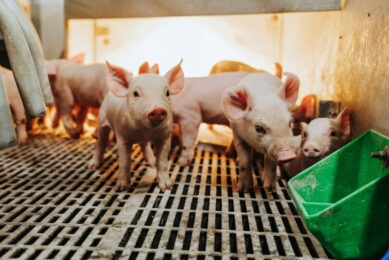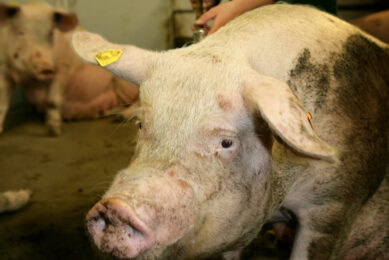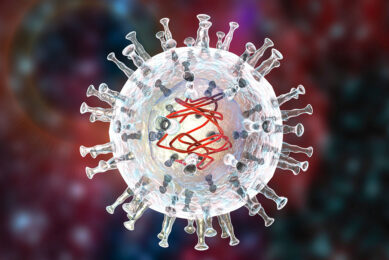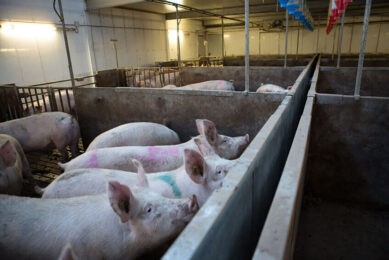PEDv vaccine developments in Canada: nanoparticles and intrauterine delivery
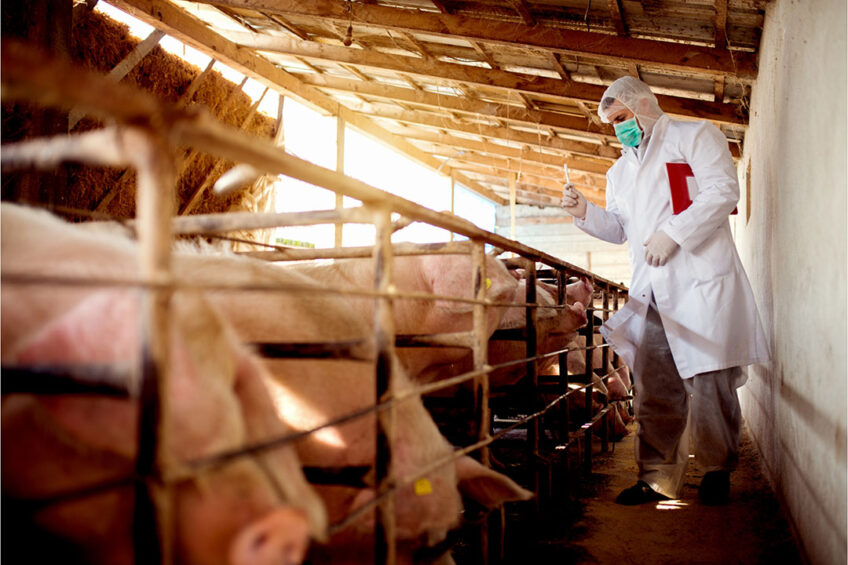
Scientists at the University of Saskatchewan and the Vaccine and Infectious Disease Organization (VIDO) in Canada are investigating how encapsulation of vaccines or drugs within spherical tiny ‘nanoparticles’ could allow delivery of vaccines to sows and gilts during artificial insemination.
Nanotechnology is one way that scientists think that problems with vaccines such as instability and generation of only a low immune response could be overcome. A team of scientists from Iran has done a review of studies on this topic. The team noted that “the use of nanoparticles in vaccine formulations allows not only enhanced immunogenicity and stability of antigen, but also targeted delivery and slow release.”
Directly to immune cells
In a recent media interview, Dr. Azita Haddadi, an Associate Professor with the University of Saskatchewan’s College of Pharmacy and Nutrition, explained further that nanoparticles can take vaccines directly to immune cells. This results in a more robust immune response.
Right now, Haddadi and her colleagues focus on a nanoparticle-vaccine system to deliver a vaccine for Porcine Epidemic Diarrhea (PED).
At this point, the delivery system is in place, says Haddadi. The next step is trials to check for the level of immune response in piglets exposed to infection.
Delivery during AI
Haddadi also recently explained the benefits of giving vaccines to sows and gilts along with sperm delivery during artificial insemination (AI). This is intrauterine vaccine delivery. This method means that the piglets from these females are born with disease protection.
Also, because the vaccine is administered during AI, this saves the time and labour required to administer it at another point in time. As no needles are necessary, this method is safer.
Significant antibodies against PEDv
Dr. Heather Wilson, a Senior Research Scientist at VIDO, has reported that previous VIDO research on a non-nanoparticle vaccine for PEDv showed that intrauterine-vaccinated sows had significant antibodies against PEDv in their blood, in the uterine tissue and in the colostrum.
However, “suckling piglets took up antibodies in the colostrum but challenge studies showed that they were too low to offer strong protection against disease.”
Other progress published last year
In August 2022, the team published a paper on a study that combined giving a nanoparticle-encased PED vaccine in the muscle with a PED vaccine given through intrauterine delivery.
They found that “a single-dose intramuscular nanoparticle vaccine with or without prior intrauterine priming triggers specific uterine and colostral mucosal antibodies and systemic immunity in gilts.” However, neither vaccine “was sufficient to promote protective suckling piglets against infectious PEDv.”



